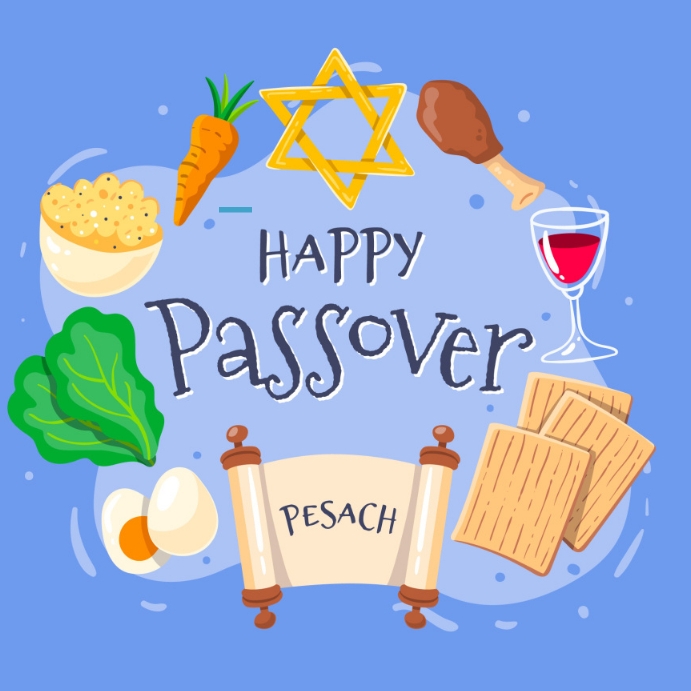Passover Starts Today…What Is It and How Is It Celebrated?

The holiday of Passover (‘Pesach’ in Hebrew) is an 8-day festival from sundown on April 5, 2023, to sundown on April 13, 2023. As a practicing Orthodox Jew, I’ll talk about what it is and what I do to celebrate!
Where does Passover come from?
The holiday honours the biblical fleeing of the Jews from Egyptian slavery. Its observance centres around two pillars:
- The ritual of the seder (a religious feast), which recreates the story of the Exodus.
- The prohibition from eating certain foods during the days of the holiday.
Retelling the story reminds us of how precious freedom is, and the food restrictions remind us of the difficult times of Jewish slaves prior to and during the Exodus.
How do we celebrate Passover?
In the lead up to Passover, we prepare our homes; people will clean their homes and start to get rid of all the chametz (unleavened bread) or forbidden foods within the house. Many orthodox Jews, like my family, change their dishes, pots, pans, cutlery etc. and only use special dishes which are kept especially for the festival.
The main foods which are forbidden during Passover are most leavening agents, such as any breads/yeast, cakes, biscuits, or crackers. The reason for this is because when the Jews became free from slavery, they left Egypt in such a hurry there was no time for their bread to rise for the journey and instead, they had just enough time to make flatbread (matzah). However, traditionally observant Jews don’t eat processed foods unless they are marked “Kosher for Passover”.
On the first two nights of Passover, families and friends gather for a religious feast known as a seder. During this meal, a seder plate at the centre of the table which contains Passover foods with particular significance to the Exodus story. This may include matzah, bitter herbs, a lamb shank bone and a mixture of fruit, nuts and wine known as charoset, which represents the cement Jews used while building bricks as slaves in Egypt.
We retell the story of leaving Egypt from a guidebook called the Haggadah and throughout the evening rituals are performed, such as dipping vegetables into saltwater to represent the tears the Jews shed during their time as slaves, and we eat bitter herbs (usually horseradish) to symbolise the unpleasant years of their captivity.
A core memory for me is spending Passover in Israel, it was one of the greatest experiences and it’s like no other, being in a place where everyone around you is celebrating the same festival – it’s magical. To me, Passover means freedom – freedom to enjoy our cultural rituals, to be able to gather as a family, and enjoy life. Although Passover is about remembering what happened to our ancestors, we are thankful for our existence as Jews and how as a community we survived slavery – and we are still here, invigorated as ever.
Chag Pesach Sameach!
Authored by Sophia Norman
